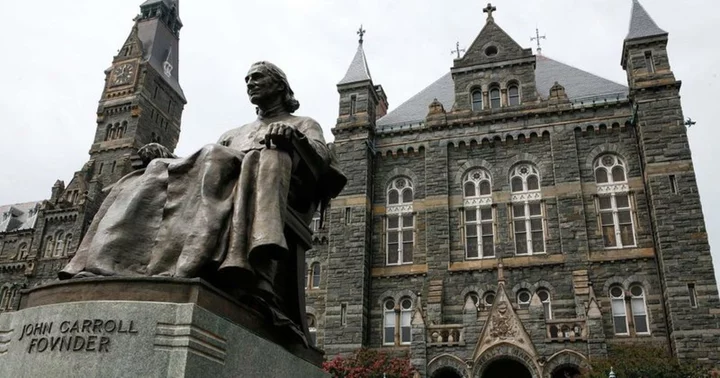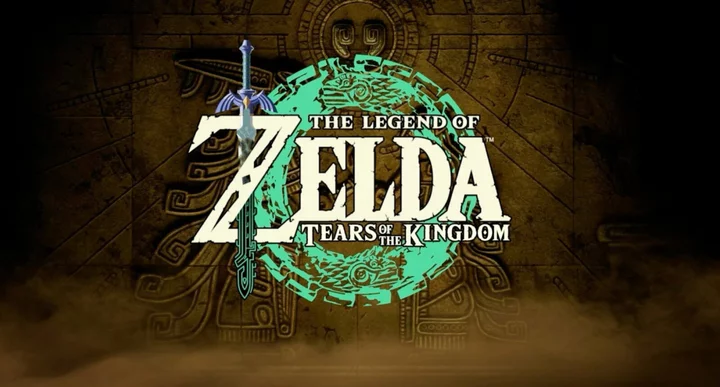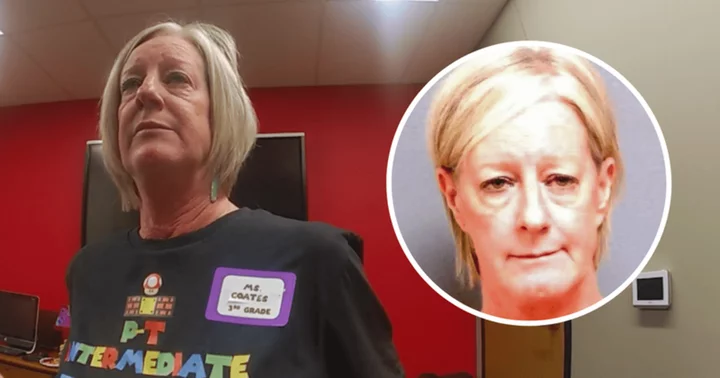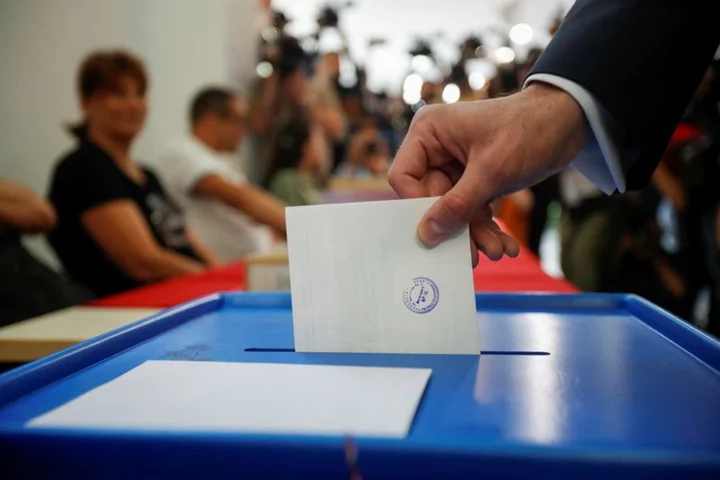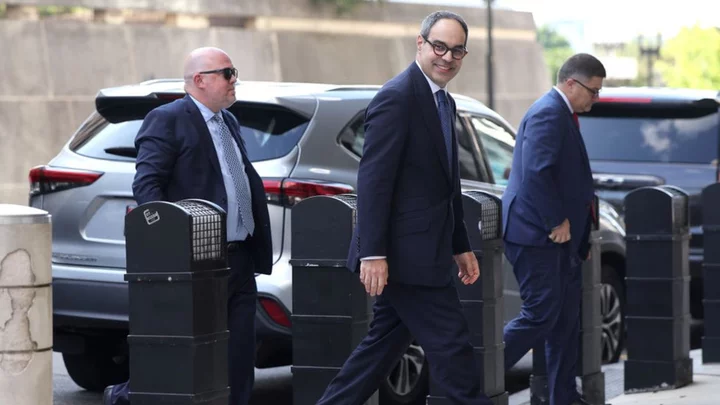WASHINGTON, DC: In a monumental display of reconciliation and acknowledgment of historical injustices, Georgetown University and the Jesuits have jointly donated a substantial $27 million to the Descendants Truth & Reconciliation Foundation.
The contribution is part of an ambitious plan to raise an astonishing $1 billion for the foundation, aimed at supporting the educational aspirations of descendants of those enslaved by the Jesuits and fostering "racial healing and reconciliation."
Descendants Truth & Reconciliation Foundation's purpose
Established in 2021, the Descendants Truth & Reconciliation Foundation has set its sights on rectifying the lingering wounds of the past, specifically addressing the descendants of individuals who were sold into slavery to pay off a debt at Georgetown University in the 19th century.
This historic contribution, announced recently, includes $10 million in fresh funding from Georgetown University and an additional $17 million from the Jesuits, also known as the Society of Jesus. The substantial financial injection elevates the total funding of the Descendants Truth & Reconciliation Trust to an impressive $42 million, according to the foundation's press release.
Beyond this significant contribution, the Jesuits have made an earlier donation of $7 million this year, based on the value of former plantation land that was previously owned by the province. This land had a direct connection to the sale of 272 enslaved persons by the Jesuits in 1838, providing vital financial support to a struggling Georgetown University at the time.
The GU272 Descendants Association now represents approximately 13,000 known descendants, a number that continues to expand as more individuals trace their lineage back to those who were forcibly sold and relocated to Maringouin, Louisiana, in 1838.
Georgetown University's Reconciliation Fund, which was inspired by an undergraduate student referendum in 2019, actively accepts applications for projects that aim to benefit communities of descendants. This fund reflects the university's commitment to addressing its historical ties to slavery and fostering a path toward healing and reconciliation.
Leaders' perspectives
Monique Trusclair Maddox, a descendant herself, serves as the CEO of the foundation and chair of the board of directors.
She expressed the profound significance of these contributions, stating, "These contributions from Georgetown University and the Jesuits are a clear indication of the role Jesuits and other institutions of higher education can play in supporting our mission to heal the wounds of racism in the United States, as well as a call to action for all of the Catholic Church to take meaningful steps to address the harm done through centuries of slaveholding."
Joe Stewart, a fifth-generation descendant and Chair Emeritus and Co-Founder of the Descendants Truth & Reconciliation Foundation, echoed the commitment to the foundation's mission.
Stewart stated, "When Descendants and Jesuits created our partnership, we shared the belief that a moral approach to truth, healing, and reconciliation offers the greatest opportunity to uplift future generations of Descendants—dismantling the remnants of slavery while healing this nation of hate and racism."
This latest commitment brings the Jesuits' total contribution to the foundation to $42 million. Two years ago, the Jesuits pledged to raise $100 million in support of the foundation's efforts, with a total goal of $1 billion.
When combined with the matching $10 million pledges and the $7 million previously donated by the province earlier this year, the total of newly announced gifts now amounts to $27 million.
"The thing that's most important to descendants is that this is a unique undertaking for all of us to bring about truth and reconciliation in this country, for what the Jesuits themselves confess to being a sin against God," Stewart told the Washington Post.
"We went straight to the Jesuits and called upon them to make a moral commitment to live up to what Catholicism has taught us," he added.
Historical context of the donation
The historical context of this remarkable contribution harks back to 1838 when two Maryland Jesuit priests, who also served as presidents of Georgetown University, orchestrated the sale of 272 people to pay off the school's debts. This deal amounted to approximately $3.3 million in today's currency.
These individuals had previously toiled on the school's plantations in Maryland but were forcibly sent to work in fields in Louisiana after the sale. Notably, about $500,000 from that sale was used to keep the university financially afloat when it was facing the threat of closure. The legacy of this transaction has cast a long shadow over Georgetown's history.
In 2016, Georgetown University took a pivotal step in confronting its troubling ties to the slave trade. President John DeGioia announced a significant change to the school's admissions process, granting preferential admission to the descendants of the 272 slaves whom the college's earlier leaders had sold to secure the university's financial stability.
The historic announcement took place in Washington, where 272 men, women, and children gathered, many of whom belonged to families that had been enslaved by the Jesuits for generations. They were sold for the sum of $115,000, roughly equivalent to $422 per person. The agreement was memorialized in handwritten form and signed by all parties involved.
These descendants, who experts estimate to number in the thousands, are now entitled to advantages akin to the children and grandchildren of alumni, reflecting the university's commitment to acknowledging and addressing its historical wrongs. The decision by President DeGioia followed a year-long effort in which a university committee researched Georgetown's history with slavery.
The committee's 102-page report, released in conjunction with the announcement, revealed that slavery was deeply ingrained in the university's business model even before its official founding in 1789. Slaves played a pivotal role in working on the Jesuit plantations, which provided the school with the necessary funds for construction.
Moreover, these indentured workers were not limited to labor in the fields but were also brought to campus to serve students and other affluent individuals, emphasizing the extent to which slavery was woven into the fabric of the institution.
Who is the head of the Jesuits?
Arturo Marcelino Sosa Abascal, SJ, born on November 12, 1948, is a Venezuelan Catholic priest who currently holds the position of the 31st superior general of the Society of Jesus. His election as Superior General took place during the Society's 36th General Congregation on October 14, 2016, following the leadership of Adolfo Nicolás.
Notably, Arturo is the first individual from Latin America to assume this significant role within the Jesuit order. Arturo Sosa's background includes a familial connection to influential figures, as his father, Arturo Sosa, Sr, held the esteemed position of finance minister in 1958 and 1982.
Arturo Sosa, SJ, embarked on his journey within the Society of Jesus in 1966, eventually becoming ordained as a priest in 1977. His educational achievements encompass a licentiate in philosophy earned from the Universidad Catolica Andres Bello in 1972 and a doctoral degree in political science, which he attained from the Universidad Central de Venezuela in 1990.

